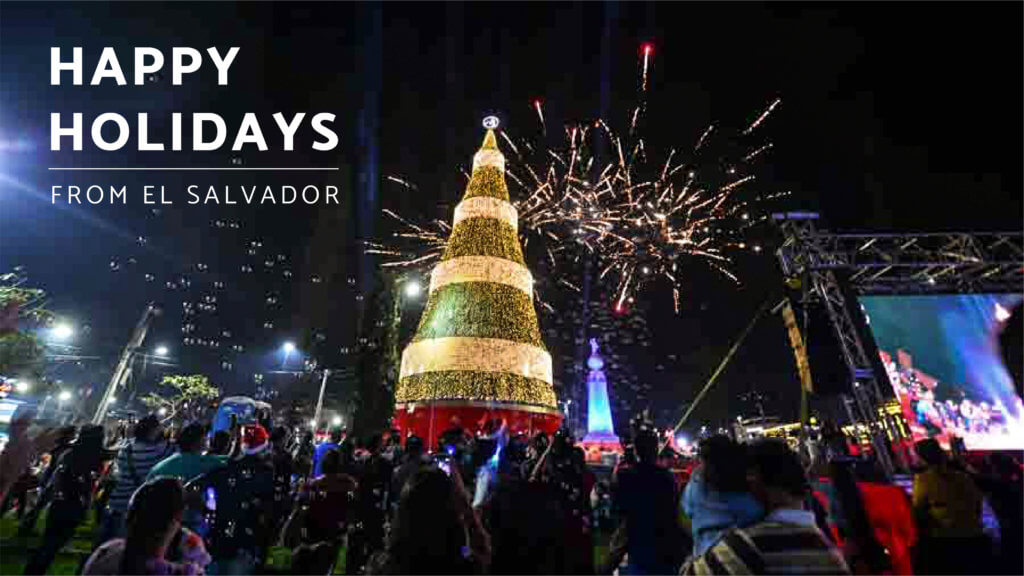Felices Fiestas!

If you’re a Scrooge or a Grinch, you’d be wise to steer clear of El Salvador during the holiday season. The small Central American country, where OSI is based, has an abundance of Christmas spirit.
It starts in early November, after Día de los Muertos (Day of the Dead), and as the region is transitioning from the rainy season to the cooler, windier dry season. Without Thanksgiving to serve as a buffer—that, of course, is strictly an American holiday—Salvadorans and expats are greeted by Christmas music on the radio. Multicolored lights on and in homes and businesses soon follow. An American may think, Too soon! But the locals are just getting started—and, in many cases, the decorations won’t come down until several days into January.
In late November and early December, the redondeles (roundabouts), like electric peacocks, debut their holiday displays. The most prominent and popular of these is Salvador del Mundo, which is sponsored by the bakery San Martin and features lights, vendors, and a gigantic Christmas tree. The square in Antiguo Cuscatlán also features a tree, along with elaborate light displays.
The festivities do not culminate on Dec. 25, but on Christmas Eve, which is known as “Nochebuena.” Families gather at an appointed house. Food—turkey, tamales, rice, panes con pollo (large chicken sandwiches), etc.—is served. Drinks—wine, beer, soda, juice, horchata, etc.—are too.
Traditionally, in El Salvador, this is anything but a silent night. Music blares, the conversation is animated (family members may not have seen each other all year) and, eventually, the children sneak outside to set off fireworks. As midnight nears, the blasts are loud and incessant.
El Salvador, as you may know, is a predominantly Catholic country. That helps explain the popularity of Christmas here. It also helps explains why, as the clock edges toward 12 a.m., many families leave the home and make their way to church for Midnight Mass.
If gifts are given, they are exchanged on Christmas Eve. But in El Salvador, Christmas is less about spending money and more about spending quality time with friends and family.
In comparison to Christmas, New Year’s Eve in El Salvador is subdued and somewhat anticlimactic. Most bars and restaurants are closed. Like on Christmas, people tend to ring in the new year at home with friends and family. There are fireworks, but not expensive displays. Most of the partying are done not in the big cities, but at the beach.
Regardless of where you are spending your Christmas and New Year’s—San Salvador, San Diego, New York City, Mexico City, etc.—OSI would like to wish you and yours a hearty “Happy Holidays!” and “Happy New Year!” Stay safe! We’ll see you in 2021!

